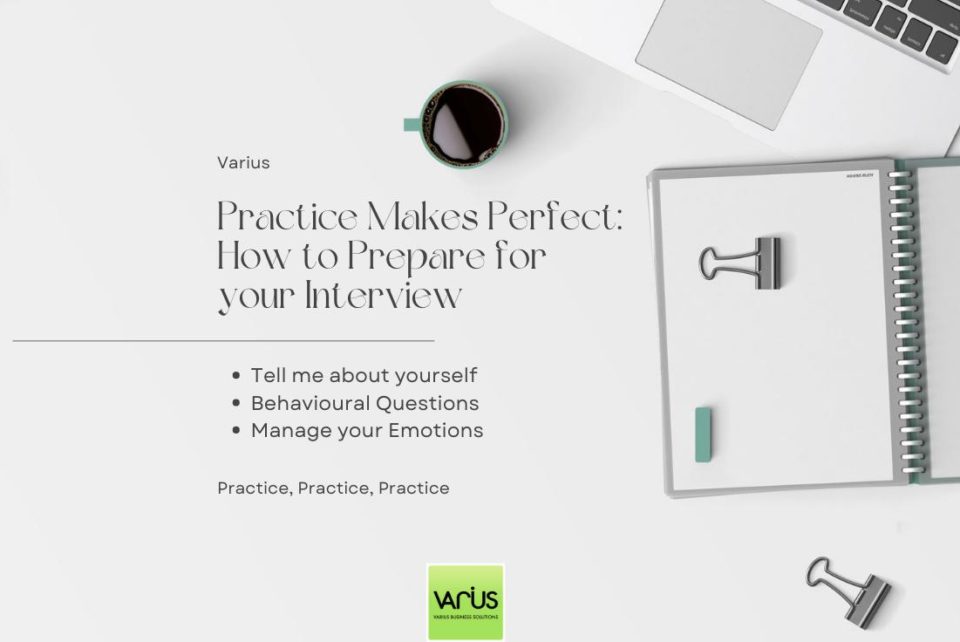
Practice Makes Perfect
When it comes to interviewing for jobs, are you good at it?
That’s sort of a trick question. The truth is that nobody is inherently good or bad at interviewing. It’s a learned skill. And just like any other skill, it’s only possible to improve it through practice.
Why Do I Need to Practice?
The irony about this particular skill is that we get really good at interviewing when we’re actively on the market. We go to one interview after another, honing our skills, perfecting them just in time for us to land a job. Then – employed again – we fall out of practice, and go through the whole process again the next time we’re on the hunt for a job. (As an aside, this is a great reason to interview occasionally for jobs when you’re not actively looking. It keeps your skills sharp for the next time you really need them. And hey – you just might stumble across your next great job in the process.)
In other words, the best time to practice for interviews is between the times you really need to.
How to Practice for a Job Interview
The first step in interview preparation is to think about common questions you’re almost guaranteed to be asked. ‘Tell me about yourself’ is one of those, so you’ll want to have an elevator pitch ready to go. Your strengths and weaknesses, of course. Your proudest accomplishments, and moments of failure. These questions are pretty ubiquitous, so it makes sense to prepare your answers ahead of time.
After these common ones, you could spend a lot of time trying to figure out what questions (among millions of possibilities) you might be asked. Instead, forget about questions, and turn your attention to stories.
Whether a question is a behavioural interview question or not, stories are the best way to talk about your past performance and demonstrate your value as an employee. There are four target areas to focus on here. The first two are achievements and accomplishments, and failures and missteps. Everyone has highs and lows in their career, and interviewers ask about them because they’re great ways to understand how you define and pursue success, and how you deal with and learn from failure. The next two areas are difficult people, and difficult decisions and situations. These are important to interviewers because they demonstrate how you overcome obstacles. Good answers also often shed some light on your decision-making process.
A great many questions follow those four themes. So, if you have a few stories reflecting each of those areas, you’ll be able to ‘repurpose’ them in response to a wide variety of questions.
When you’ve got your answers mapped out – your answers to common questions, and some good stories to tell – it’s time to practice.
It’s tempting to just think about your answers, maybe even rehearse them in your ‘inside voice’. Speaking your answers out loud is better, and how far you go with this is up to you.
At the very least, use your phone to record yourself. Listen back, critique yourself, improve, and do it all over again.
You can take it one step further using video. This is particularly helpful if you’re doing a lot of virtual interviews. Use whatever hardware setup you usually use, and video yourself answering questions and telling your stories. Not only can you critique the content and delivery of your answers, you can also evaluate your body language and facial expressions. This is also a great time to practice maintaining eye contact with the camera (instead of watching yourself on the screen, a very hard habit to break).
If you really want to go all the way, you could consider looking for someone to do a mock interview with you. This doesn’t tend to work all that well with a friend, since it’s not a realistic scenario. It’s better to do this with someone who interviews and hires people, and who doesn’t know you too well. (All that said, it’s still better to just interview for jobs occasionally as mentioned above; there’s no substitute for the real thing.)
Managing your Emotions
Except for the very fortunate confident few, a job interview can be a stressful experience. For the rest of us, managing this anxiety is an important part of being prepared for interviews.
This may seem counterintuitive, but once you’ve prepared and rehearsed, put it aside and give your brain a break. Overthinking can be just as harmful as underthinking. If you know you’re prone to anxiety and stress, meditation and deep breathing can help calm the nerves. Don’t underestimate the power of visualization, either. Picturing yourself being confident in the interview can really help boost your confidence when it comes to the real thing.
Do you have an important interview coming up? There’s no time like the present to get started. Try these tips, and let us know how it goes.
www.variusbusinesssolutions.com